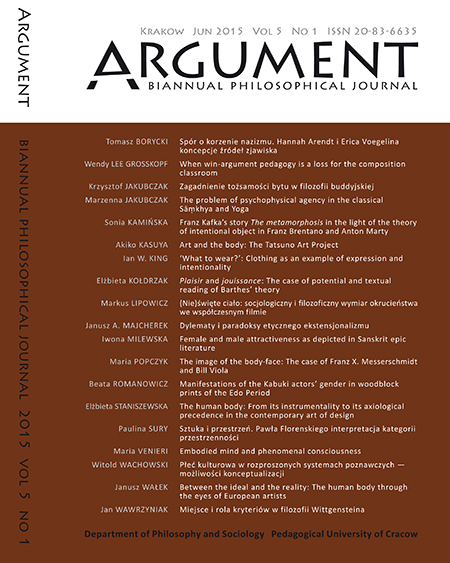Miejsce i rola kryteriów w filozofii Wittgensteina
Keywords:
Ludwig Wittgenstein, criterion, rule, meaning, grammar, theory of knowledgeAbstract
The role of criteria in Wittgenstein’s philosophy: The main objective of this article is to explain the role of the concept of a ‘criterion’ in Ludwig Wittgenstein’s philosophy. To do so, the author juxtaposes a few well-known interpretations of this issue, and compares the notion of a criterion with the notion of a rule. Contrary to Peter M.S. Hacker’s reading, he points out that according to Wittgenstein, to give the ‘criteria of use’ of an expression is to determine its ‘grammar’. To meet the criteria does not merely mean justifying the fact that a given thing occurs, but means that a given expression has an application under the particular conditions. Thus, there is no difference between the determination of the criteria of an expression’s use and the explication of its meaning. It should be noted that the fact that the expression ‘x’ has an application in a given situation does not always imply that the sentence ‘this is x’ is also true in this situation. The Wittgensteinian notion of a criterion is a semantical rather than an epistemological concept. Therefore, the conceived criteria cannot be used to reject scepticism, if by rejecting it we mean demonstrating its falsity. According to Wittgenstein, we can show at most that a sceptic, who rejects all criteria of use of words, cannot frame any doubts.


